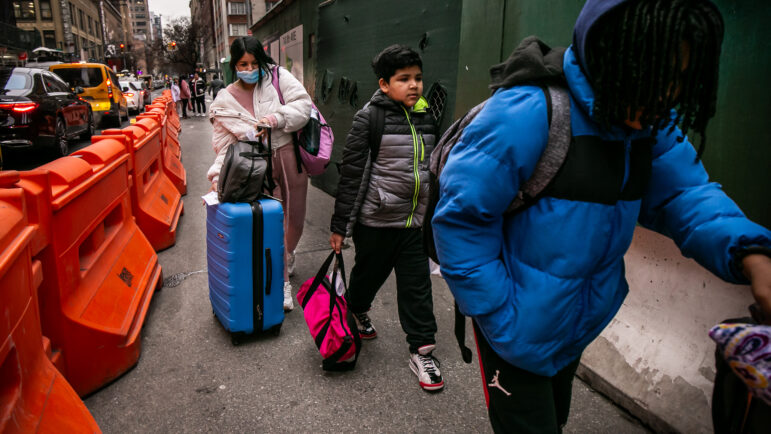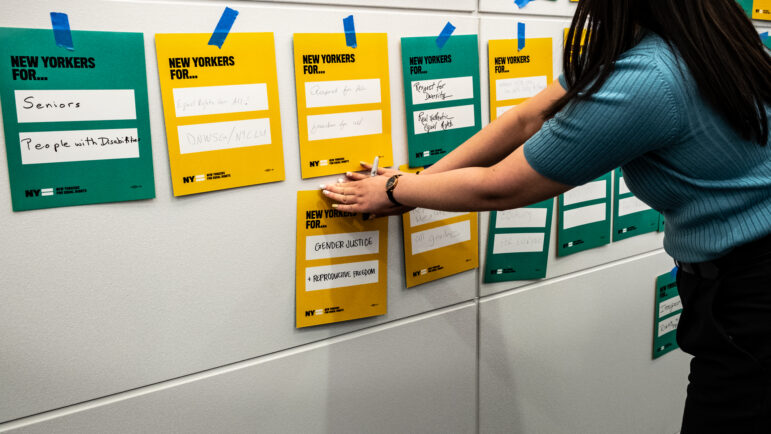
Photo by: Jarrett Murphy
“I like finding people, knowing how to do that—to interact with people, to speak to people in ways that are conducive to getting them to help you,” says one Warrants cop. “It’s not all hard-nose.”
The State Division of Criminal Justice Services says there are at least 250,000 open arrest and bench warrants in New York State. Roughly two-thirds of them are from New York City. Other estimates of open warrants in the city run as high as 1.5 million. Whatever the numbers, they represent the caseload of the NYPD’s Warrants Section. When people skip court, the warrants squad—with 370 officers divided into squads that work each borough—is supposed to bring them back.
Depending on which estimate of the number of warrants you use, the Warrants Section is charged with finding a fugitive population equivalent to a city at least as big as St. Petersburg, Fla., and perhaps as large as Philadelphia. They obviously have to prioritize. “Different resources get expended on different cases,” says a veteran warrants officer who spoke on condition he not be named. “Violent crimes, it’s all out.” A guy wanted for criminal drug possession, on the other hand, can wait. “But there are nuances to it,” the officer adds. While a judge might reduce a charge from a felony to misdemeanor, Warrants will look at the nature of the allegations. A robber who punches his victim in the face and runs away might not be charged with a felony, but Warrants won’t treat him as a run-of-the-mill misdemeanant. Some crimes get particularly close attention: A few Warrants officers specialize in murders and gun crimes, and carry smaller caseloads.
According to the officer, Warrants is a choice NYPD assignment. “If you’re a detective in the precinct, you work in that precinct. If you’re a detective in Warrants, your cases could take you anywhere in the city, anywhere in surrounding counties, states—potentially anywhere in the country.” The work is also rewarding. “I like finding people, knowing how to do that—to interact with people, to speak to people in ways that are conducive to getting them to help you,” says the Warrants cop. “It’s not all hard-nose.”
He adds that his section is struggling to cope with reduced staffing: “We’re very selective, let’s just put it that way.”








